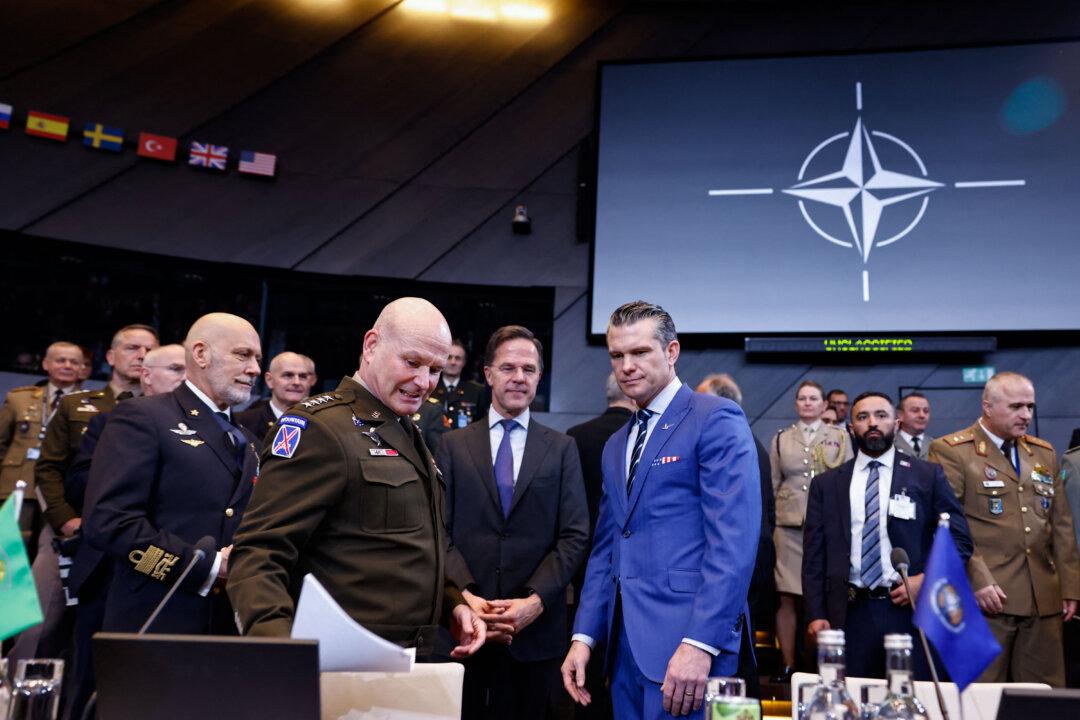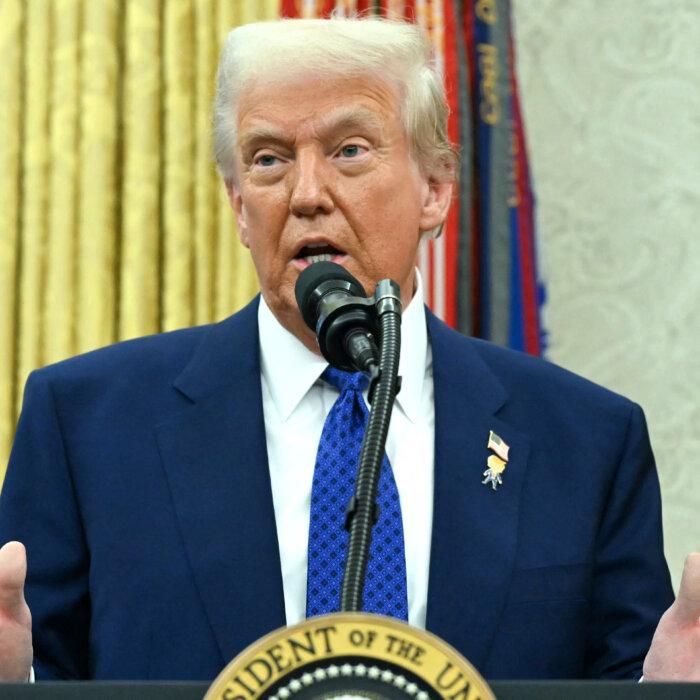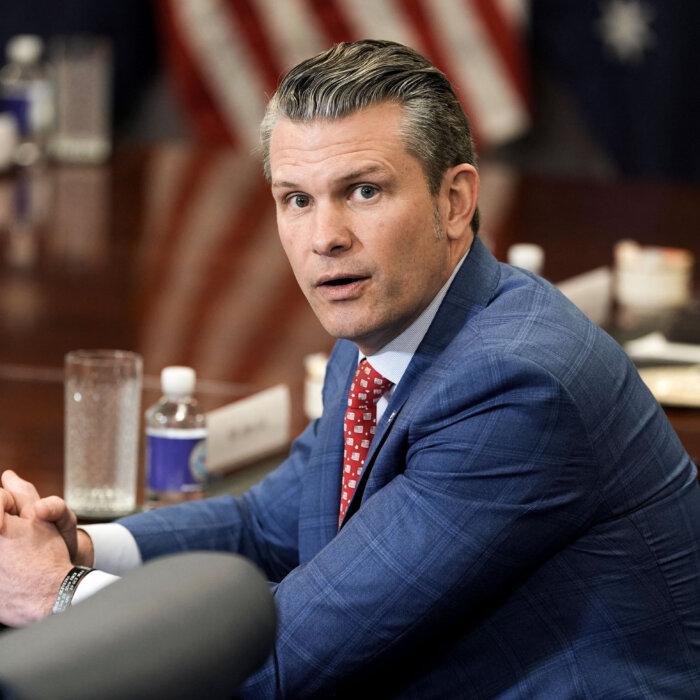European nations pushed for involvement in discussions on the future of Ukraine on Feb. 12, following U.S. President Donald Trump’s announcement that he and Russian President Vladimir Putin plan to meet to discuss an end to the Russia–Ukraine war.
Britain, Germany, France, Poland, Italy, Spain, and the European Commission (EC) said that only a fair agreement with security guarantees would ensure lasting peace and an acceptable resolution to the conflict.
Ministers from the six nations and the EC met with Kyiv’s foreign minister in Paris, on Feb. 12, after which they issued a joint statement saying: “Our shared objectives should be to put Ukraine in a position of strength. Ukraine and Europe must be part of any negotiations.
“Ukraine should be provided with strong security guarantees. A just and lasting peace in Ukraine is a necessary condition for a strong transatlantic security.”
The statement added that the Europeans were looking forward to discussing how to proceed with their allies in the United States.
The meeting was scheduled weeks ago with the aim of drawing up the continent’s collective strategy in Ukraine, discussing how to strengthen their allies in Kyiv, plans for future peace talks, and their joint approach to talks with the Trump administration ahead of a security conference in Munich beginning on Feb. 14.
But the plans were upended after U.S. Secretary of Defense Pete Hegseth said a return to Ukraine’s pre-2014 borders was unrealistic and that the Americans did not see NATO membership for Ukraine as part of a solution to the war.
Those comments were followed by the call between Trump and Putin, after which the U.S. president revealed Washington and Moscow had agreed to immediately initiate talks, something none of their European allies knew of ahead of time.
When asked whether any European countries would be involved in the peace talks, White House press secretary Karoline Leavitt said, “I don’t have any European nations who are involved currently to read out for you.”
Feb. 13 saw further comments from Europe’s defense ministers as they met for a NATO summit at the organization’s headquarters in Brussels.
“There can be no negotiation about Ukraine without Ukraine. And Ukraine’s voice must be at the heart of any talks,” British Defense Secretary John Healey said.
His German counterpart Boris Pistorius added, “For me, it’s clear ... that Europe must be involved in the negotiations—and I think that’s very easy to understand, particularly if Europe is supposed to play a central or the main role in the peace order.”
Pistorius added that the continent “will have to live directly” with the consequences of the peace and that therefore “it goes without saying” that Europe must be part of the negotiations.
French Defense Minister Sébastien Lecornu issued an even more dire warning, calling into question the future of NATO itself.
He said: “To say that it’s the biggest and most robust alliance in history is true, historically speaking. But the real question is will that still be the case in 10 or 15 years,” after the U.S.—by far NATO’s biggest and most powerful member—signaled that its security priorities lie elsewhere, including in Asia.
NATO Secretary-General Mark Rutte, who is chairing the Feb. 13 meeting, said that whatever agreement is reached between Kyiv and Moscow, it is vital that the “peace deal is enduring, that Putin knows that this is the end, that he can never again try to capture a piece of Ukraine.”
Hegseth denied that the United States has undercut Europe and Ukraine with this launch of negotiations, saying: “There is no betrayal there. There is a recognition that the whole world and the United States are invested and interested in peace. A negotiated peace.”
Standing as a notable outlier to his fellow EU and NATO member states, Hungarian Prime Minister Viktor Orbán criticized the European’s demand to be in the negotiations, calling it a “sad testament of bad Brusselian leadership.”
“The position of Brussels—to support killing as long as it takes—is morally and politically unacceptable.”
Ukrainian President Volodymyr Zelenskyy, meanwhile, said he refuses to accept any negotiations that do not include his country.
Speaking as he visited a nuclear power plant in western Ukraine for the first time since Trump held calls with Putin followed by himself, Zelenskyy said the main point was to “not allow everything to go according to Putin’s plan.”
“We cannot accept it, as an independent country, any agreements without us,” he said. “I articulate this very clearly to our partners—any bilateral negotiations about Ukraine, not on other topics, but any bilateral talks about Ukraine without us—we will not accept.”
Zelenskyy added that Trump had not told him he would be speaking to Putin first, but went on to say that it was important for “Ukraine to preserve the support of the United States.”







